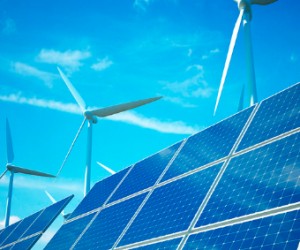The Nordic countries Denmark, Finland, Norway and Sweden hosted the Nordic Energy Days conference from September 13 through 14 at The Innovation Hub in Pretoria. The countries have over the last 10 years collaborated amongst themselves to develop an innovative energy mix focused on effective system integration, grid stability and sustainable energy solutions.
The Nordic countries outlined their experience and the function of their energy mix, with Finland’s Deputy Minister of Economic Affairs and Employment Petri Peltonen stating:
“We have very advanced electricity and energy systems and our grids have been connected for decades. The Nord Pool has now been in operation since the 1990s and it is the world’s largest exchange for electricity …. We are trying to increase the share and production of renewable energy from various sources, Finland being focused on bio-based sources and our colleagues in hydro, wind and others …. The South African government objectives are also ambitious regarding renewable energy in particular and I think our mission is really to first of all open up our experiences, lessons learned, the positive and at the same time also connect the best of our resources, companies, agencies, research organisations with our South African counterparts during the Nordic Energy Days.”
Ambassador of Sweden to South Africa Cecilia Julin added:
“The Nordic cooperation is really strong and I think that’s what we want to share with South Africa as well … because we get inspired by SADC to show possibilities to work in the Southern African Power Pool. We can share experiences from Nord Pool and how we can work together.”
Day one of the conference was focused on opportunities for the Southern African Power Pool (SAPP) teaming up with the Nordic countries. Norwegian Deputy Minister Ingvil Smines Tybring-Gjedde stated that embracing the diversification of energy sources will minimise the effects of global warming, whilst significantly enhancing the share of energy between countries within the SADC region as it has done for the Nordic countries.
The Nordic countries have shown a particular interest in working with the region by assisting in the facilitation of cross-border cooperation. The countries also indicated a desired involvement in ensuring energy security in Europe by developing a prolonged relationship with the African continent.
Special energy adviser to the South African presidency Silas Zimu said on this point:
“Let us learn from what the Nordic countries have done …. Public companies need to put measures into place.”
The second day of the conference highlighted the technical side of the energy sector focused on clean technology and grid technology. In a session on clean technology, DNV GL Africa’s business manager Robert O’Keefe talked on the decarbonisation of the energy system within the next 30 years due to increased efficiency in energy generation leading to a significant decrease in the overall demand of energy. He went on to state that the global use of fossil fuels to generate energy would decrease from 81% to 50% by 2050, which can be troubling for Southern Africa as a region profoundly endowed with coal as a source for power generation.
To effectively support the integration of clean energy into the SAPP it is vital for the region to develop a stable grid. Stig Uffe-Pederson, Deputy Director General of the Danish Energy Agency, highlighted the importance of these technologies, mentioning:
“This is also a story about making a green transition. This is about investing and setting long-term political projections and a stable framework that allows this transition. In that way, you are actually able to sustain economic growth while you reduce your energy emissions and while you also reduce your energy consumption.”










